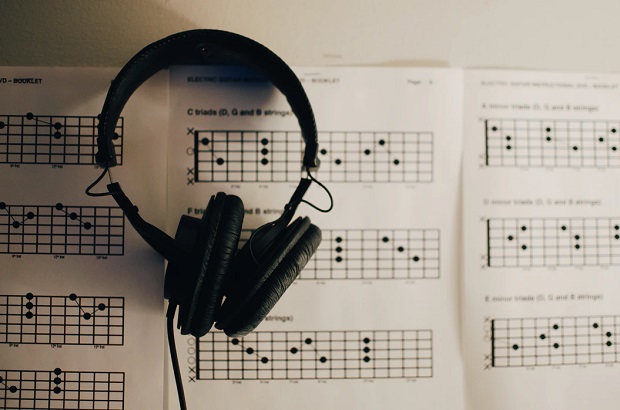What is Music Therapy in Addiction Treatment? – All You Need to Know

What is Music Therapy in Addiction Treatment?
Recovering from addiction is not just about stopping substance use. It’s about healing emotionally, mentally, and physically. Addiction recovery involves many forms of therapy, and one powerful tool is music therapy. Music therapy offers a creative outlet for individuals to express emotions and relieve stress. Whether listening to songs, writing lyrics, or playing instruments, this therapy uses music to support recovery. Let’s explore music therapy, how it works, and why it benefits addiction treatment.
Key Takeaways
- Music therapy is a creative and effective tool used in addiction treatment.
- It helps individuals process emotions, reduce stress, and build coping skills.
- Incorporating music therapy promotes holistic recovery and long-term sobriety.

What is Music Therapy?
Music therapy is a therapeutic approach that uses music to address emotional, social, and physical needs. Certified music therapists guide individuals through activities that help them explore their feelings, develop skills, and strengthen their recovery.
Music Therapy Activities May Include:
- Listening to music to evoke specific emotions or memories.
- Writing lyrics to process thoughts and experiences.
- Playing instruments to foster creativity and focus.
- Participating in group music sessions to connect with others.
Music therapy can be tailored to meet the unique needs of each person, making it a versatile and engaging option in addiction treatment.

How Music Therapy Supports Addiction Recovery
Managing Emotions
Addiction often stems from unresolved emotions like guilt, anger, or sadness. Music therapy provides a safe space to explore and process these feelings. For example, writing a song about personal struggles can be a healing experience.
Reducing Stress
Music has a natural ability to calm the mind and body. Listening to soothing melodies or participating in guided relaxation exercises helps reduce anxiety and promotes relaxation. This is especially important during early recovery when stress levels are high.
Building Coping Skills
Through creative expression, music therapy encourages individuals to develop healthy ways of managing emotions and challenges. Playing an instrument or creating a playlist for tough moments can become tools for handling stress or cravings.

Common Music Therapy Techniques in Addiction Treatment
Listening to Music
Listening to meaningful songs can evoke memories, inspire reflection, or boost mood. Therapists may guide participants in exploring how certain music affects their emotions and thoughts.
Songwriting
Writing lyrics allows individuals to express their journey, hopes, and challenges. This activity encourages self-reflection and can be a powerful way to release pent-up emotions.
Playing Instruments
Learning or playing an instrument provides a sense of achievement and focus. It can also serve as a positive, substance-free hobby.
Group Music Sessions
Group music activities build connection and teamwork. Singing, playing instruments, or creating music fosters community and shared understanding.

Benefits of Music Therapy in Addiction Treatment
Promotes Emotional Healing
Music therapy helps individuals process complex emotions in a supportive environment. By expressing themselves through music, they can work through pain and find peace.
Encourages Self-Awareness
Exploring emotions and thoughts through music increases self-awareness. This insight helps individuals understand their triggers and develop healthier responses.
Reduces Stress and Anxiety
The calming effects of music therapy make it a valuable tool for managing stress, anxiety, and cravings, which are common during recovery.
Enhances Communication Skills
Music therapy can improve communication, especially for those who struggle to articulate their feelings. Music becomes a universal language that bridges gaps and fosters connection.
Supports Long-Term Recovery
By teaching positive coping mechanisms and encouraging self-expression, music therapy strengthens the foundation for lasting sobriety.

How to Incorporate Music Therapy into a Treatment Plan
Work with Certified Music Therapists
It’s essential to seek music therapy from trained professionals who understand addiction recovery. They can tailor sessions to individual needs and ensure therapeutic goals are met.
Combine with Other Therapies
Music therapy works well alongside evidence-based treatments like counselling, cognitive behavioural therapy (CBT), and group therapy. Together, these approaches provide comprehensive support.
Explore Personal Interests
Encourage individuals to explore music styles and activities they enjoy. Whether writing a personal anthem or learning to play the guitar, personalizing the experience enhances engagement and benefits.
Conclusion
Music therapy is a creative and transformative tool in addiction treatment. It helps individuals process emotions, manage stress, and build healthy coping skills, all while fostering connection and self-expression.
If you or someone you love is struggling with addiction, consider the benefits of music therapy as part of a comprehensive recovery plan. Get in touch with Virtue Recovery Houston today to learn how music therapy and other holistic approaches can support your healing journey.
FAQs
What is Music Therapy in Addiction Treatment?
Music therapy uses music to support emotional healing and recovery from addiction.
How Does Music Therapy Help in Addiction Recovery?
It helps individuals manage emotions, reduce stress, and develop healthy coping strategies.
What Are Some Examples of Music Therapy Activities?
Activities include listening to music, songwriting, playing instruments, and participating in group sessions.
Where Can I Find Music Therapy for Addiction Treatment?
Virtue Recovery Houston offers music therapy as part of its recovery programs. Visit their website or give them a call for more information.
Guest Article.




